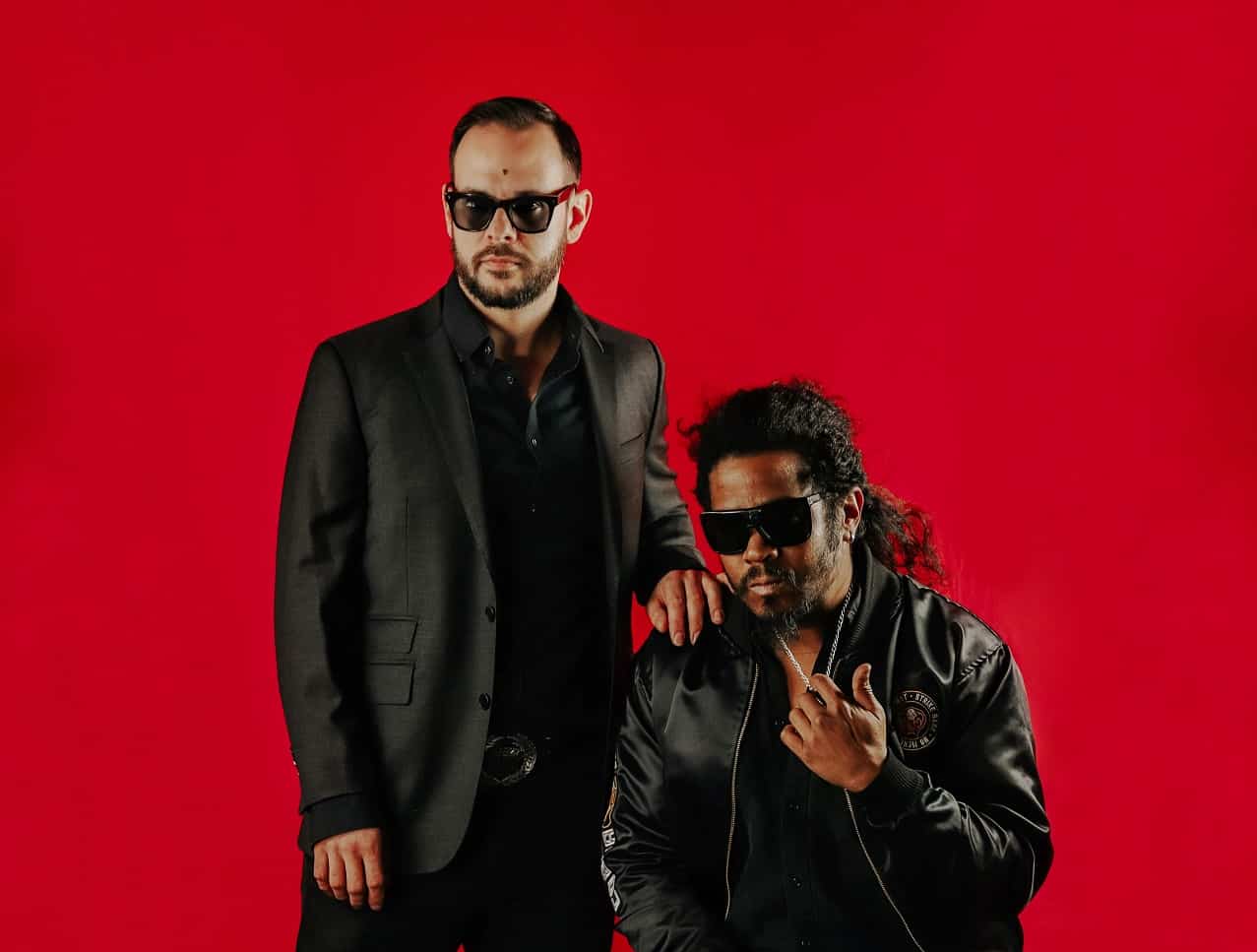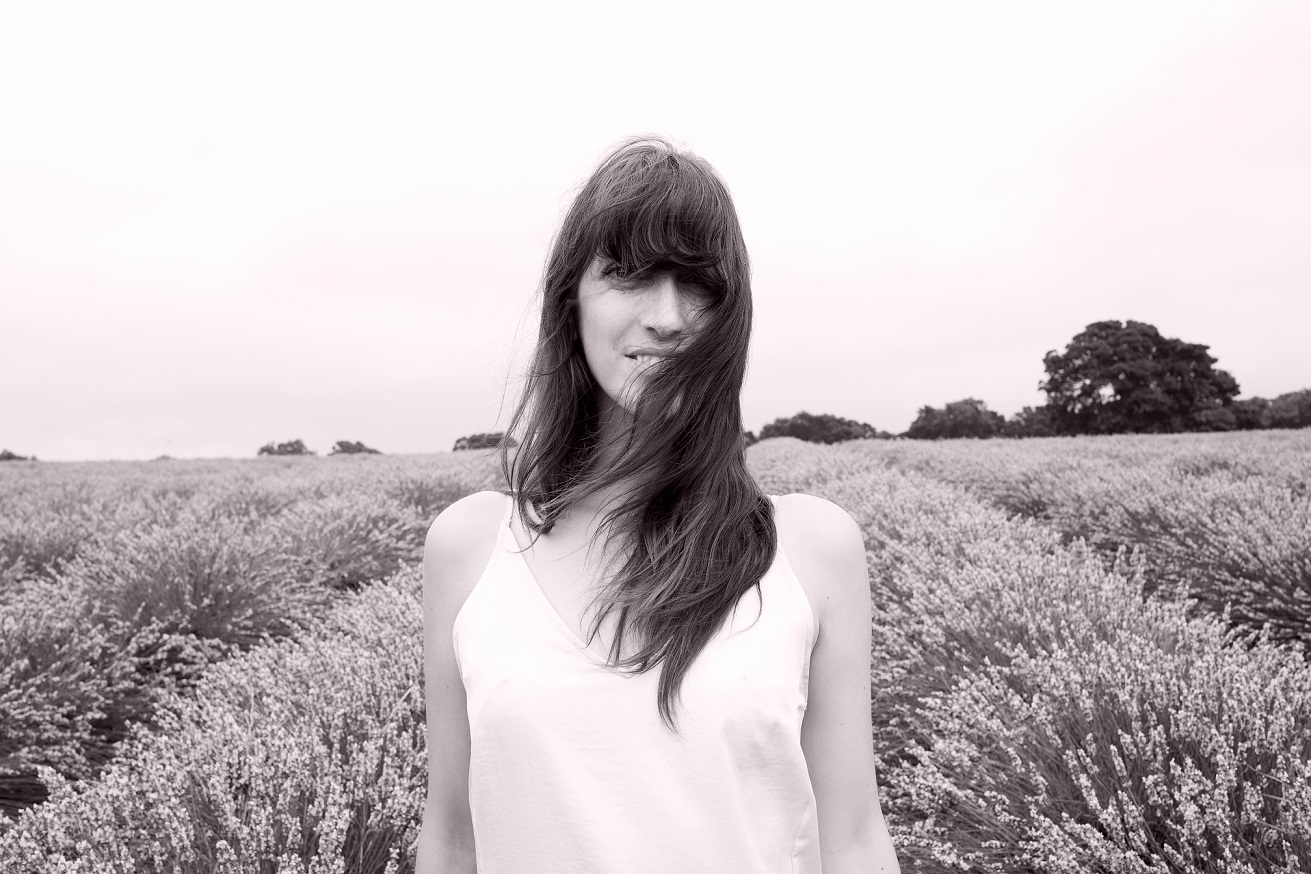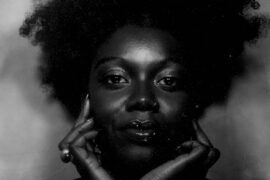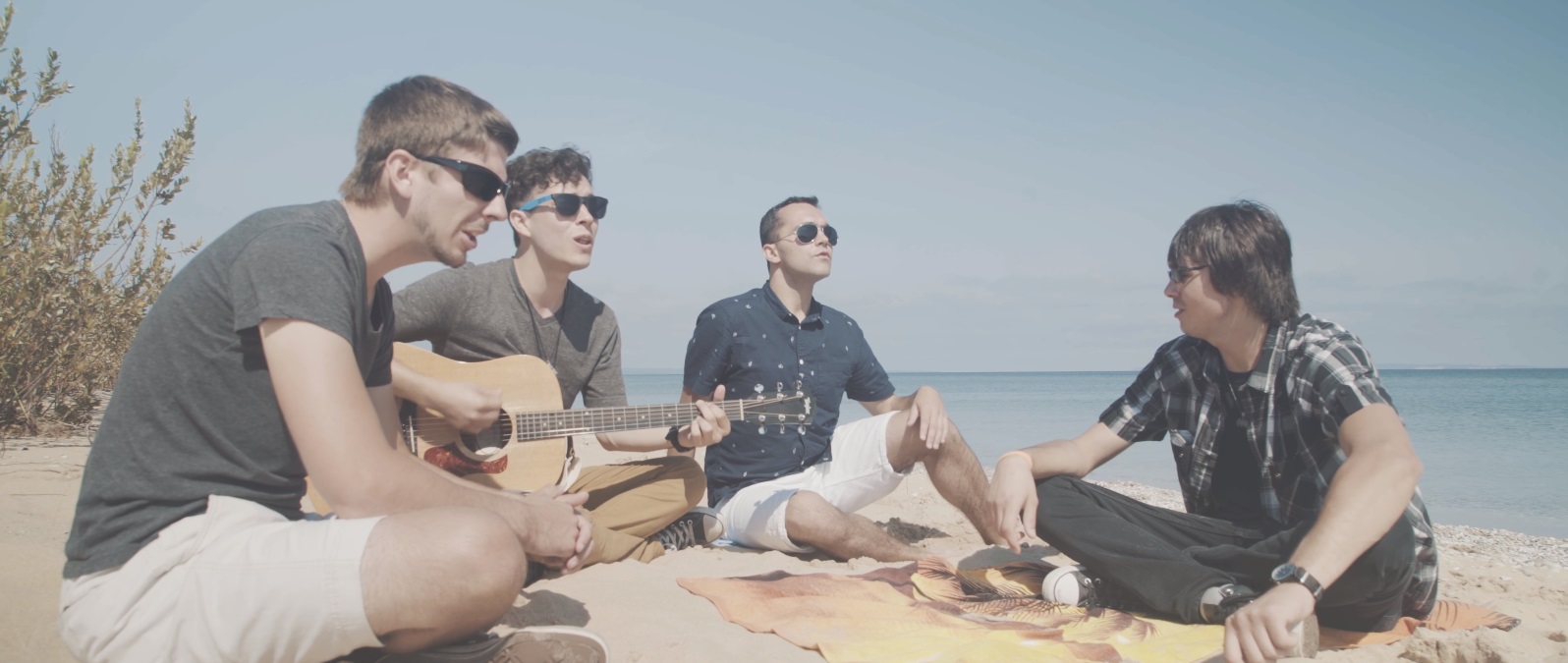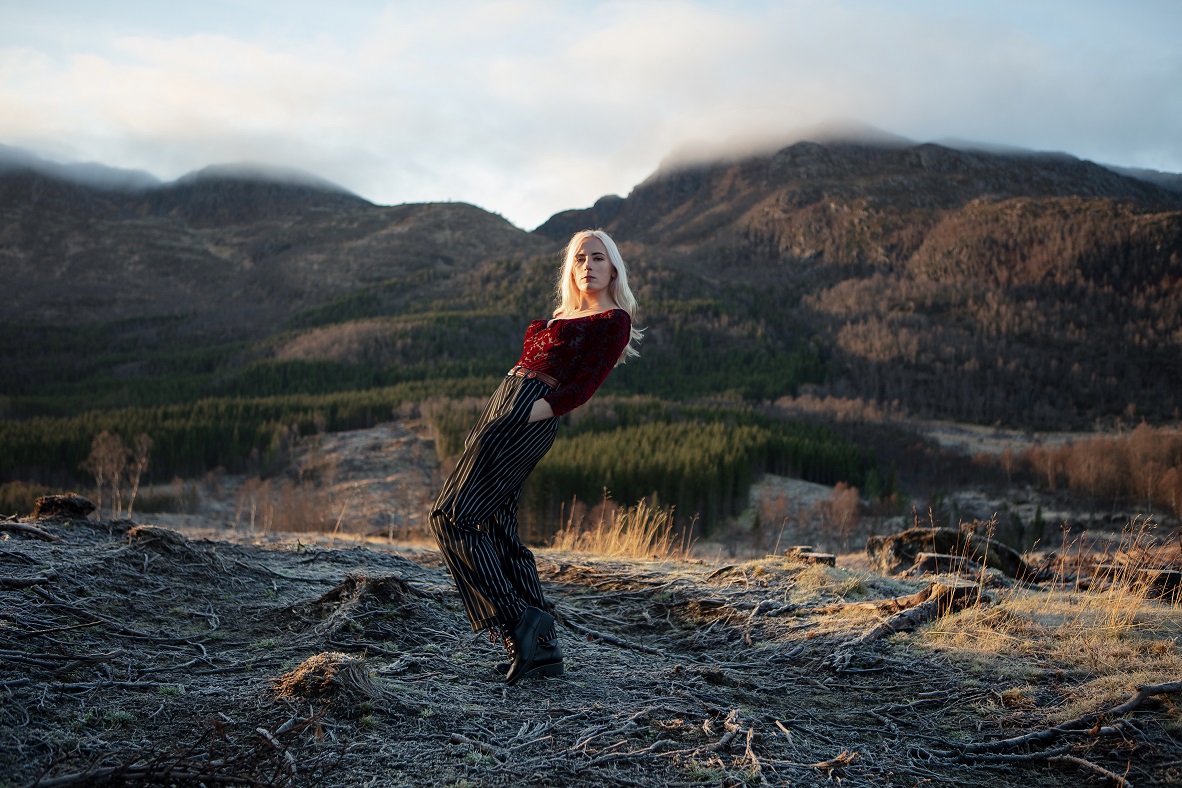After a tumultuous recording process, English singer/songwriter Ben Howard’s fifth album ‘Is It?’ has some of his most joyful tunes.
Stream: ‘Is It?’ – Ben Howard
It’s incredible, all our different faculties, how we put words together, how we search for meaning, the richness of language and how it intersects in our daily lives. We do take language for granted.
British folk musician Ben Howard has had a successful, but intense, album cycle.
In March of last year, laying in his garden, he found himself suddenly unable to speak or think clearly for more than an hour. A month later, he was in the same situation, and learned later that he’d endured two Transient Ischemic Attacks, also known as a mini-stroke. After making a full recovery, he wrote about the events and booked a ten-day recording session in the south of France, where he produced Is It?, his fifth album. The result is a lush and captivating collection of songs, which touch on the mini-strokes as well as wildlife, anxiety, and the constant duality Howard faces.
Experimental for indie pop, Is It?’s jankiness on tracks like “Interim of Sense” and “Couldn’t Make It Up” constantly surprise the listener, whether it be through unusual song structures or Howard’s yearning singing. Often when we talk, he stretches his voice so that a glimmer of his singing peeks through. A creative, lyrical, and honest record, Howard continues his sonic diversity with one of the year’s most pleasant releases.
Is It? is out now on Island Records.
— —
:: stream/purchase IS IT? here ::
:: connect with Ben Howard here ::
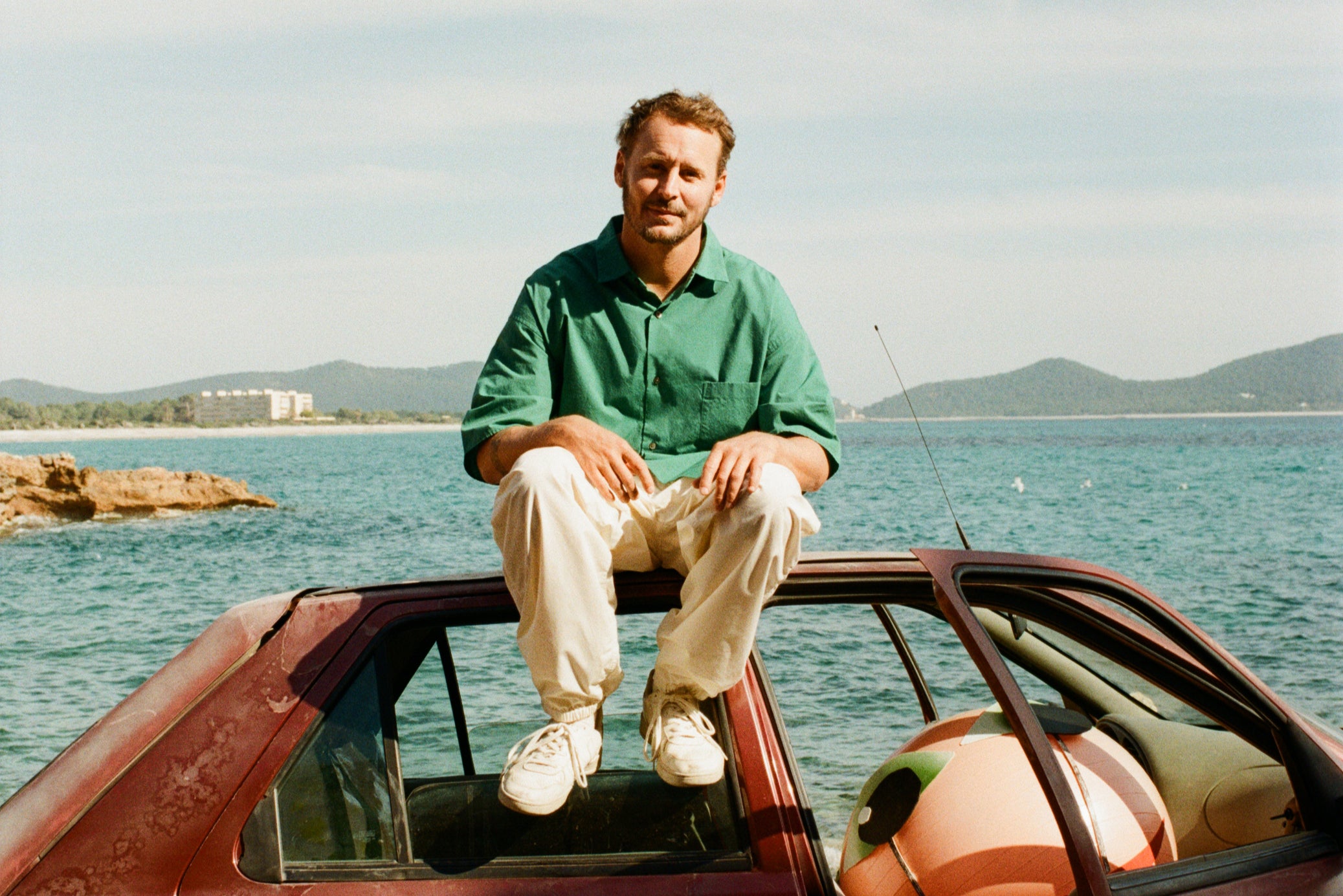
A CONVERSATION WITH BEN HOWARD
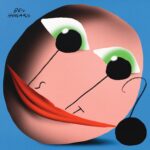
Atwood Magazine: Congratulations on Is It?, a record I frequently come back to due to its lushness and sonic quality. How has life been since it came out?
Ben Howard: It’s been good, amazing connecting with another record and sharing it with people — that’s such a fundamental part of the process. You live with a record, so many different moments where you carry it with you, experimenting with it in the studio. Once it’s out you feel like it’s the end, but all the touring starts and you realize how you have to communicate a record to people. Fundamentally, that’s quite a difficult thing, especially when there’s so much trickery going on in the studio. You have to get back to the drawing board a little bit.
Is It? was recorded over just ten days in France, but it seems like it expands lifetimes. Talk a little bit about how the recording process shaped the album.
Ben Howard: The recording process was pretty simple and pretty old-school. We had a live-in studio in the south of France, and we had a ten-day slot booked. I had the vast majority of the record written, but we sat in with Mickey Smith who plays bass and guitar, Rich Thomas who plays keys, in the live band, and Nathan Bullion, we set up a drum station for him. We experimented with pedalboards and drum tracks and speaker configurations. With these threads of songs running though everything, I had quite obvious guitar patterns that were the record, and it came together piece by piece: every day we put a song down. I was recovering from these two mini-strokes I had, so I was very tired in the afternoons and I’d have a granddad nap. Which was actually quite nice to give yourself space from the studio, sometimes you can overcook yourselves. It was a really strong heatwave down there, same as this year. We were really tampered down by it, and I remember it feeling oppressively hot. We just had ten days to get all the songs together, so we muddled through it.
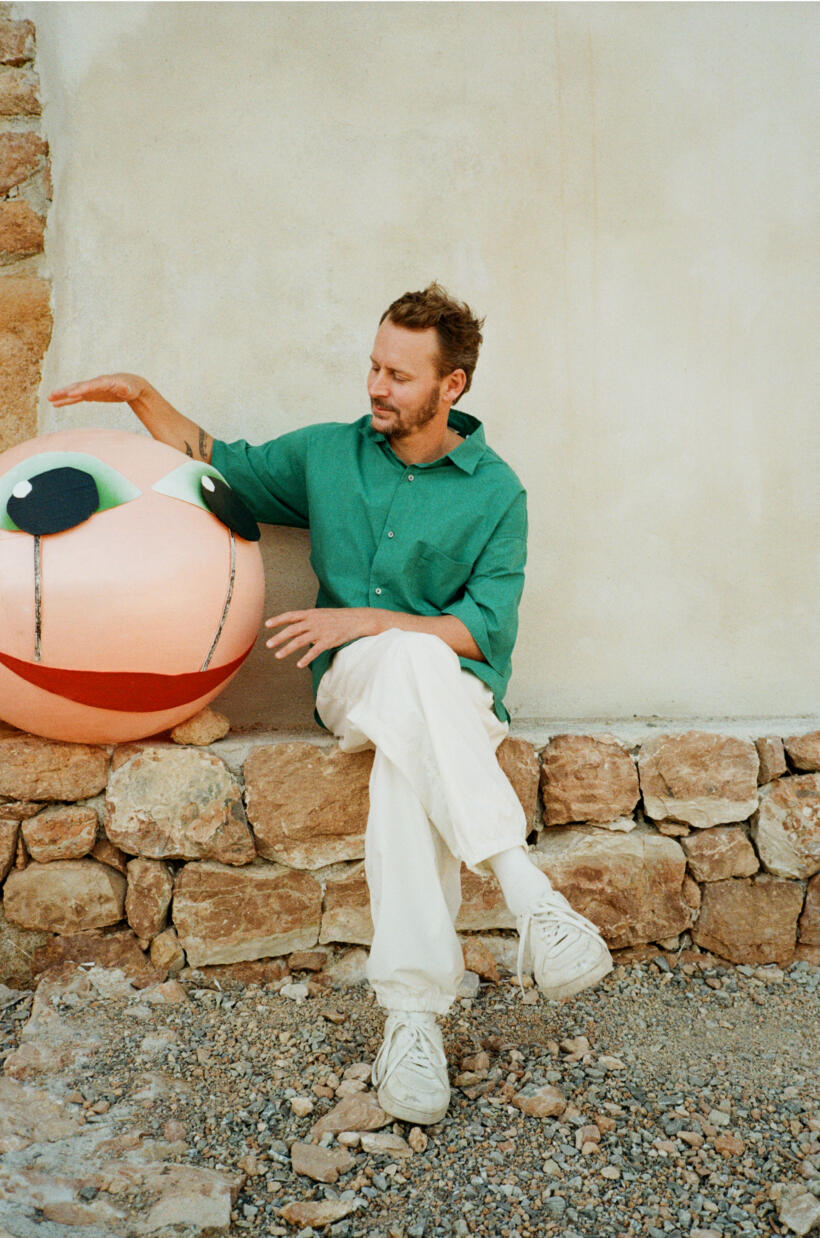
Even though the record sounds uplifting, it was catalyzed by two mini-strokes you had like you said. First of all, are you okay, and second of all, how did this life event transfer into music?
Ben Howard: Yeah, I seem to have made a full recovery. I suppose it’s interesting because I’m fascinated by how the brain works anyway, so there’s the two sides of the brain, and for me, it was a momentary lapse in the left half, language and speech. A great momentary loss, but it kickstarted a fascination and looseness of song, to be spontaneous and creative and not be hampered by this constant cognitive, almost repressive side of the brain, at times. It became a really enjoyable record because it was just great to be playing music again. Obviously with a long time away from playing live music as well, the two compiled to make an enjoyable record to be in the studio for.
Were you inspired by any other media during the album’s creation?
Ben Howard: I do do a lot of reading, I wouldn’t say particularly at the time. I was struggling to read fluently, and I was at a loss for words a lot, which was part of the recovery. A resurgence in reading recently has been fantastic. I’ve been really enjoying Cesare Pavese, the Italian author, born in Turin during the rise of facism in Italy. It’s lovely, words on a page is just magic. I do love my books, and I was longing for a while. I’m very grateful for the resurgence in reading. It was more music, I suppose, at the time.
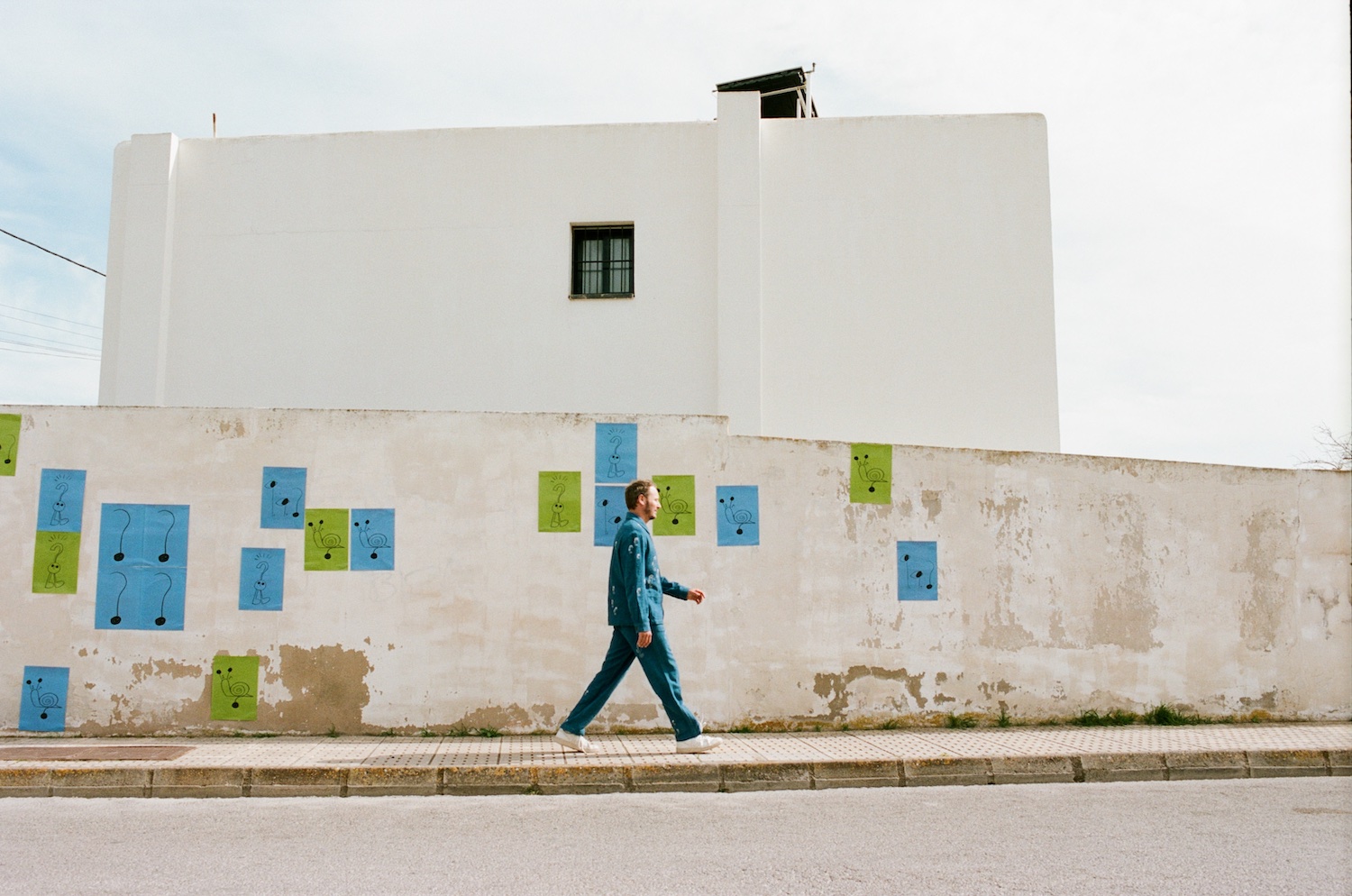
I’m glad you’ve been able to bounce back from it — it must have been so scary to not be able to do something you like.
Ben Howard: Yeah, I definitely think it makes you look around, not necessarily take stock, but certainly appreciate the cognitive make-up of it. It’s incredible, all our different faculties, how we put words together, how we search for meaning, the richness of language and how it intersects in our daily lives. We do take language for granted. I’m always fascinated by translations as well — different mother tongues and how, ultimately, all of us are just trying to get these ideas across. A record is that: you’re trying to get a personality or something across. When you take away a Jenga cube, it becomes quite difficult. Language has been that thing that’s in the way, all the time, this constant grappling we do globally.
“Couldn’t Make It Up” feels inspired by the strokes, with several different senses flashing by the narrator: “Colors shifting like a landslide,” “whistling with the wind,” and eventually you ask, “If I give up, do I give up now?” What was the writing process for this song like?
Ben Howard: That one was really an emblem in the record. The idea of giving up — how much do you rescind in these times of struggle and grappling. I think the writing process always, for a record, is to write and write until the death, then tear it up and start again and see which melodies and vocal motifs and words are the strongest and remain. So often I look back at earlier versions and wish I’d used different phrases or wordings. I suppose the writing process itself with that was build, destroy, build, destroy, and then it becomes emblematic of the record. How much do we take with us as we go, and how much do we leave by the wayside? How much have we got to give, always, when it comes to offering ourselves to other people? There’s certainly a duality in that song.
Something I noticed, and I saw several online comments about this as well, was that each album of yours seems to shapeshift with its sound. Is this intentional or just a need to differentiate between creative projects?
Ben Howard: ‘Shapeshift,’ yeah, I suppose I do like to have fun with it. I think it’s important not to be able to be bookmarked, maybe. Sometimes I long for a bit more structure, maybe a calling card. I love the idea of having a business card in music, for all those times you’re asked what type of music you make, just give a digital business card. Because it always stumps me, and I always end up jabbering like a real Englishman, pondering the question too much. I like to keep things interesting for myself, ultimately, and if that means going in a far-off direction and getting lost in the process, then I’m really happy to do that.
There’s a lot of conversation about AI and stuff coming into music these days, and I find that really interesting. Not sure where I sit with it, but certainly the idea that AI has never existed before and it hasn’t been a whole train of generic emotionless beings making music in the first place seems, to me, ironic. I’m always trying to stay in front of AI, maybe.
I love the domestic bliss paired with the haphazard, janky instrumentation of “Interim of Sense.” Correct me if I’m wrong, but it seems like the narrator is painting, baking, almost as an apology for the subject?
Ben Howard: Yeah, I suppose it could be an apology, for sure. A kind of question of doing stuff for other people. I think the guitar part and the whole song felt really dysfunctional and joyful. It is the push and pull of domesticity, I suppose, and also settling: where do you settle when your roots are questioned? It’s a jangly little throwaway number full of meaning.
That song, along with the dreamy “Life In The Time,” have these oddly formed structures that are unlike a lot of what’s in indie pop. Was it your goal to be particularly experimental with this album?
Ben Howard: Not necessarily experimental, you know what I mean, fuckin’ hell, there’s people doing way weirder things. So many inspiring folks. No, it wasn’t deliberate, but certainly trying to find your own place in a very busy world has to be an intention, has to be a foundational intention to anyone making music, to find your little space to exist and to enjoy that little oddity in what you create. Not doing it for the sake of being strange or weird, but enjoying yourself and making your own little record and knowing it makes a small part of the greater fabric of music. There’s always gonna be people weirder and doing things you wanna do, but you have your own little lane.
Trying to find your own place in a very busy world has to be an intention, has to be a foundational intention to anyone making music, to find your little space to exist and to enjoy that little oddity in what you create.
If you only have ten days in a recording studio, too, you might wanna play around while you can.
Ben Howard: Yeah, there was a lot of just throwing stuff at the wall, certainly with guitars. I think all of us, the four guitarists in our live band, we all brought pedalboards that were too big for the band, so all the pedals came out for that one.
I wanted to ask about anxiety in these songs — sometimes it comes lyrically, in the form of “Walking Backwards,” where the narrator feels at odds with his mind, yet similar to the moon; or sonically, as in the case of “Moonraker,” where a slow beat and your distorted vocals float over the track. Was this tension present in the makings of the songs?
Ben Howard: There’s certainly an anxious thread, which is probably due to the time constraint. Maybe just looking forward and looking backwards — I’m obsessed with that duality. How much time has passed, and how much time have you got left? My general disposition is anxious. I try to put across a very peaceful person, but I don’t think I am. Certainly my work in life is sporadic and not entirely functional. I’m kind of feast or famine. It’s probably that there’s always an underlying anxiety. And I think you’re right, I like to look at the places where I find a friction or lack of understanding, trying to pose a question in songs. Sometimes, if it’s an ‘Is everything okay?’, then that’s an okay question as well. That’s why the record is called ‘Is it?’, because I find everything is more interesting as a question mark than a full stop.
It wouldn’t be very satisfying if it were called ‘It Is.’
Ben Howard: Yeah! Exactly, completely different offering, isn’t it?
I think the closer, “Little Plant,” might be my favorite track, lyrically. It’s a meditation on climate change, but there’s also an aspect of how we treat nature as a more disposable object, particularly with the line, “Front line fodder for someone else’s romance.” Talk a little bit about the inspiration behind this song.
Ben Howard: I like the interpretation. I’ll tell you about the failed music video, because it’s never gonna come out and we don’t have the budget to make more music videos. I was gonna do a video of this poor little plant that gets picked up, constantly looking out of the beautiful greenhouse in Kew Gardens, at the Marianne North Gallery, looking out at the oaks and sycamores and fir trees, incredible variety, the whole spectrum of British trees, looking out, saying, ‘One day I’m gonna be out there, out in the big field with all the trees.’ And a loved-up couple buys the plant, puts it in a bag and takes it to their apartment, sitting on the windowsill or something for the rest of its life. That was the inspiration, at some point, for the song. The idea of opportunity and chance, and this constant feeling of something attainable just over there, and more often than not, not quite getting it.
So, you’re on tour now. What are you most excited about with touring, and how has it been so far?
Ben Howard: I do love traveling. I love movement and waking up in different places. I love the invitation, too, this idea, sometimes it’s quite difficult to travel to different places and just be a transient tourist. I feel like with touring, you have a bit of an invite to go to that city, off to play for people like a harlequin. I enjoy that you get to see all these places, and in a small way you’re asked to be there. Certainly America is such a vast and beautiful, chaotic country. Always, as a musician, you’re excited about America and the great challenge of it, the long winding road.
* * *
Editor’s Note: On August 29, Ben Howard announced the cancellation of the North American leg of the IS IT? Tour, citing personal reasons.
* * *
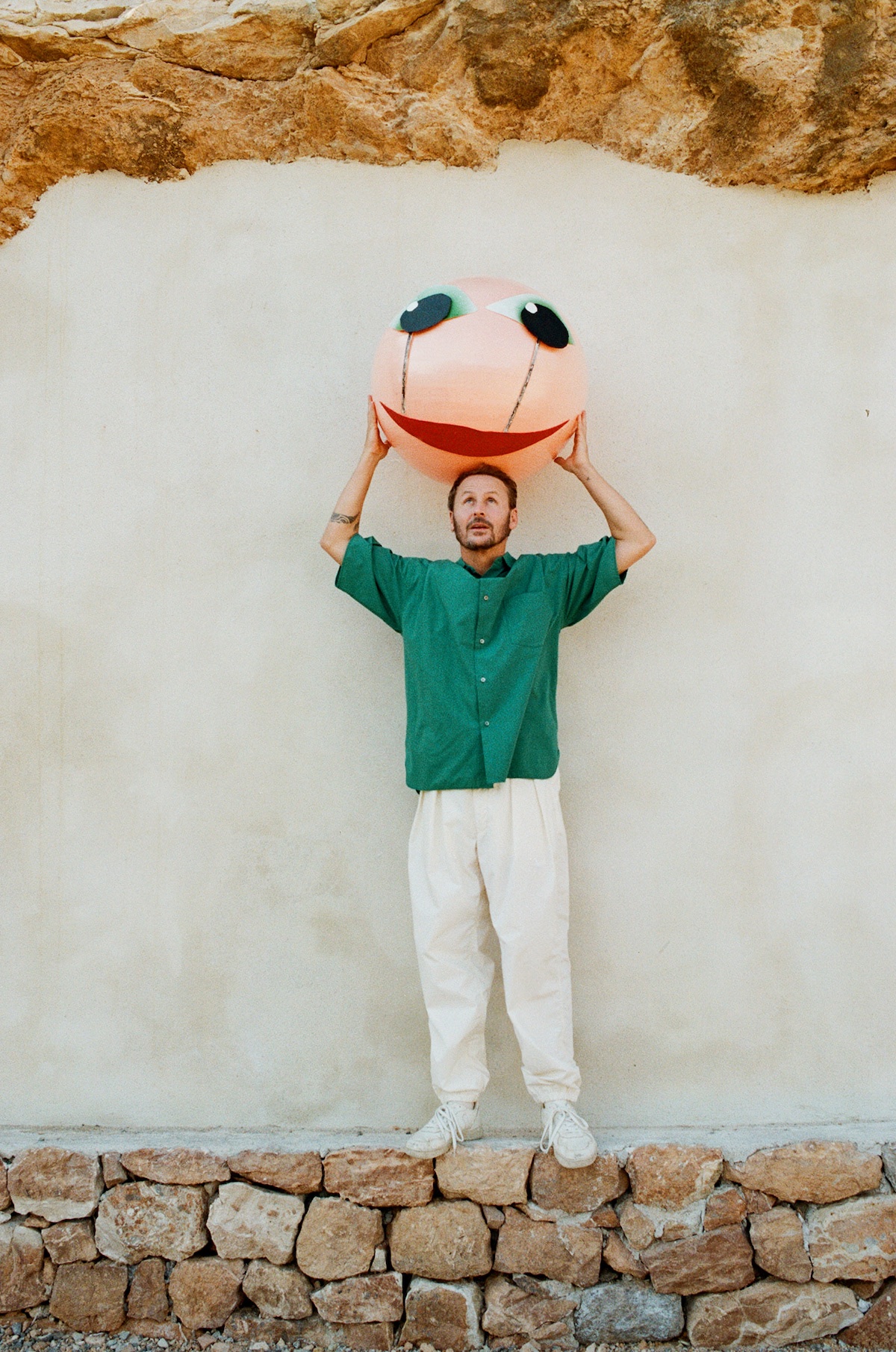
Do you have any upcoming projects, or are you thinking about a next album, and if so, what direction are you taking it?
Ben Howard: Certainly thinking of a few different records. I’m a bit conflicted at the moment. I’ve been writing a lot of stripped-back instrumental stuff. I did a few radio shows for a station in Ibiza, a lot of Celtic folk music. Supposed to be a jingly-jangly playlist, with all my guitar heroes. Certainly another record. I’ve been enjoying loosely translating some Spanish and Latin American poets. Keeping busy! You never know how things are going to come out.
— —
:: stream/purchase IS IT? here ::
:: connect with Ben Howard here ::
— — — —

Connect to Ben Howard on
Facebook, Twitter, Instagram
Discover new music on Atwood Magazine
© Toby Coulson
:: Stream Ben Howard ::

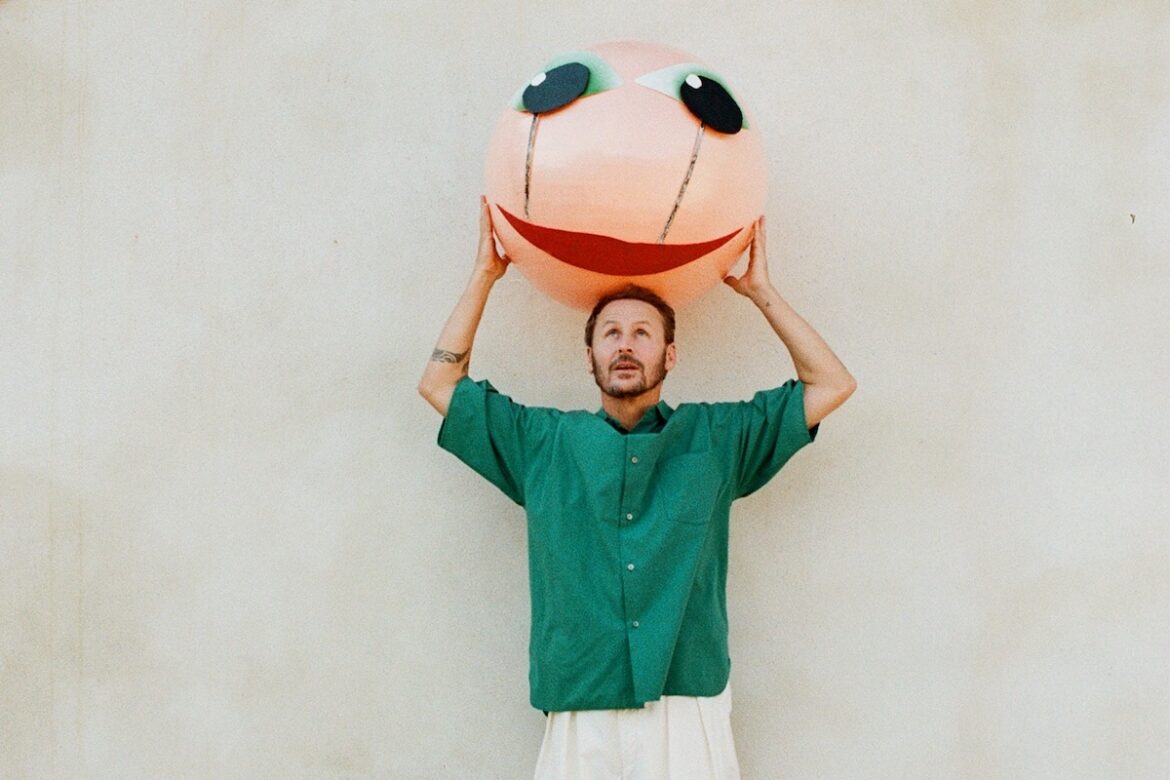
 © Toby Coulson
© Toby Coulson
